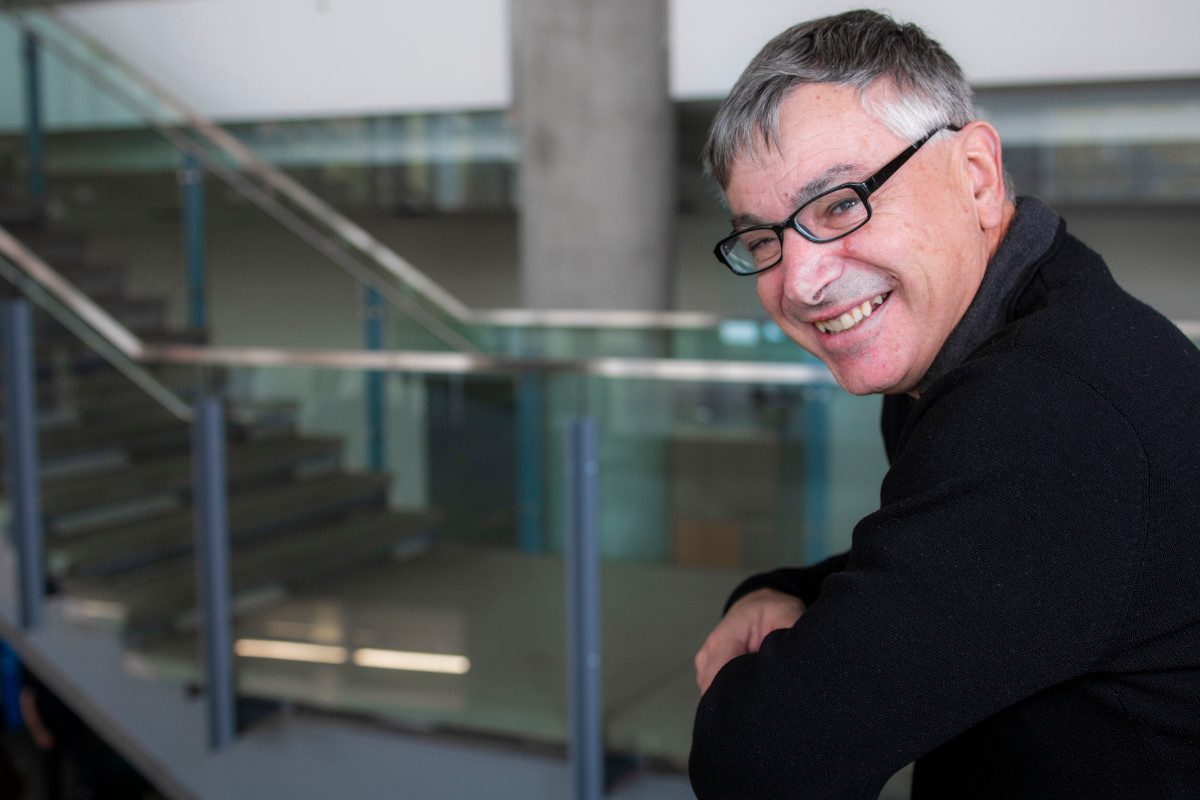
Frank Marsiglio, professor in the Department of Physics, shares his thoughts on teaching. Photo credit: John Ulan
While quantum physics might sound intimidating for some, Frank Marsiglio knows that some natural curiosity, a willingness to ask for help, and an interest in mathematics and computation make an excellent foundation for studying the subject.
A professor in the Department of Physics, Marsiglio is passionate about teaching and sharing his love of physics with his students. And when asked about his advice for those considering studying the subject remotely, Marsiglio explained that his counsel remains the same as it has always been. “Don’t be afraid to come to me for help, anytime,” he said. “We are here to help you learn.”
Hear more from Marsiglio on physics, teaching, and his advice for students learning remotely during the COVID-19 pandemic.
What do you teach?
I have taught a variety of courses from first-year physics, quantum physics, condensed matter physics, and more recently, even first-year calculus. I am passionate about teaching all these courses, but my first love is undoubtedly quantum physics at the third- and fourth-year undergraduate level.
What do you love about your field?
Everything—even the “boring” stuff. By this I mean the mathematics and computational work required, which many physicists disparage as tedious technical tools that are simply a means to an end. But I love working through problems just as much as I love understanding the results, and what they are telling us about the problem at hand, and I try to relay this love to the students.
What should students who are interested in this topic know?
They need to have some level of skill in these technical matters—mathematics and computation. Perhaps more importantly they need to be interested, because then they will be willing to do whatever it takes to further this interest. It is important to be curious about how things work.
Tell me about your passion for teaching. What inspires you?
I think I have always had a passion for teaching. I find myself often thinking about what bothered me or gave me difficulty in a subject when I was a student. I try to teach these concepts in a way that makes it possible or easier for a student to grasp the subject matter.
How do you cultivate a community of practice with your fellow instructors?
We use friendly competition plus a generous amount of sharing of ideas and best practices. On the competition side I recall a group of us would draw up a table at the end of term to see who had the best Universal Student Ratings of Instruction (USRI) scores.
Our world has been turned upside down during the COVID-19 pandemic. What advice would you give students on learning in a remote environment?
Basically similar advice to what I give them during normal times—don’t be afraid to come to me for help, anytime. I was really bothered early on in my career when I attended high school meetings for my own children and teachers and counsellors would often tell their students that post-secondary institutions were cold-hearted places, and professors didn’t care about their students. This was not and is not true. We are here to help you learn.
What is one thing that people would be surprised to know about you?
I usually tell people everything they need to know about me. One colleague seemed shocked that I could move with any speed on a squash or basketball court (can’t anymore!), and most of them already know that I am a pretty good bricklayer.
Curious to learn more? Find more information on teaching and learning in the University of Alberta’s Faculty of Science.